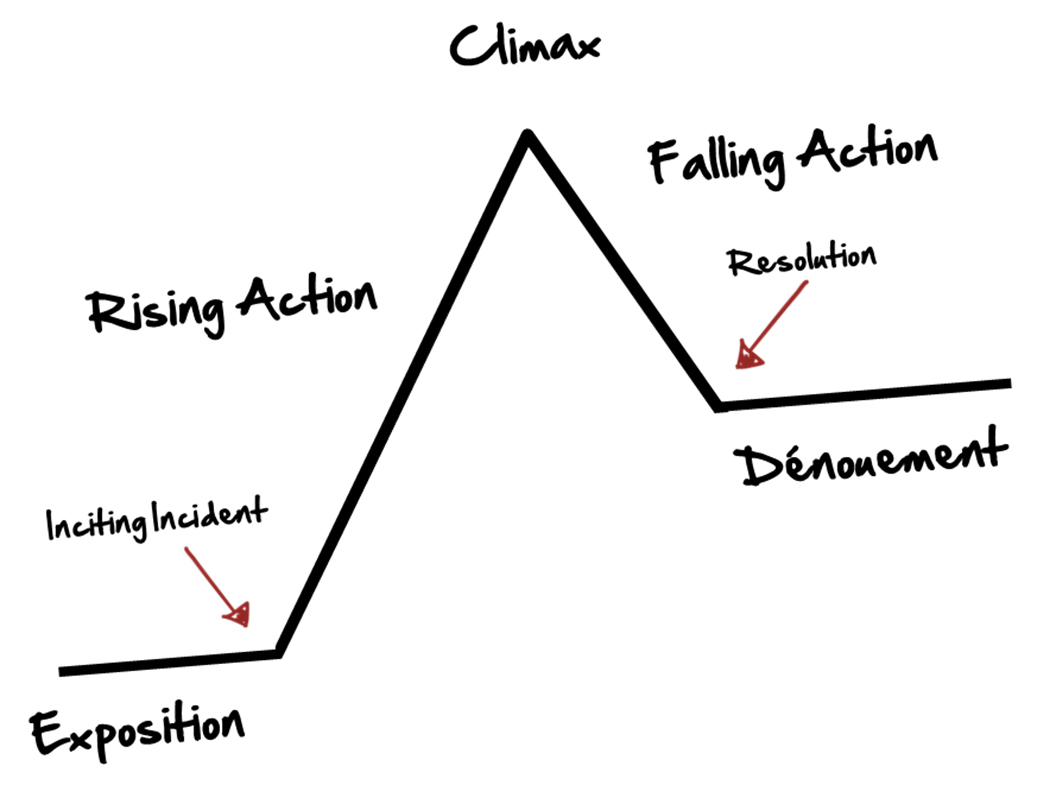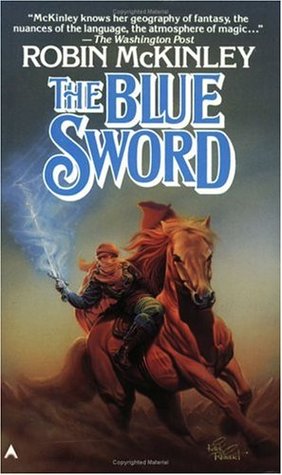___________
Exposition
Then there is a tiny dot that is often labeled "inciting incident" and the line jumps up, like the person drawing it just got poked with needle. Like this:
(In this image, there is an arrow, not a dot. But it works the same way.)
After college and choosing a career, things in life really settle down. Or they did for me. Life begins to plod along like a reliable, lovable old pony. It isn't a bad thing. It's calming - the predictability, the comfortable familiarity. Settling down is delightful.
But then after all of my settling down and nesting and predicting -- I un-settled-down. The hubs and babe and I are about to make a big move - a physical move out of our state to a new state; a move into a tiny apartment; a move away from friends and towards family; a this changes everything move.
I feel like our move is an inciting incident. The problem is I don't know what comes next. I can't even imagine my life two weeks from now when we will presumably, if all goes according to our half-plan, be sitting amidst a myriad of boxes and trying to convince Melon that this is normal and she can indeed nap in this strange new place.
I have no idea what happens next. I have no idea how long we still stay in New State and where or when we will move on.
I feel like Anne, after she is (somewhat) forced to stay in Avonlea instead of go to college. She comments, "When I left Queen's my future seemed to stretch out before me like a straight road. I thought I could see along it for many a milestone. Now there is a bend in it. I don't know what lies around the bend..."
This is true for me. Here in Old State, my life was in stasis, the flat line of exposition; I could see the future stretched out before me with it's pleasures and pains; I knew who we would be spending our holidays with and how we would spend our leisure time, and where I would be working for the next decade or so.
Now there is a bend in the road. Or a jolt in the plot diagram.
It's pretty terrifying.
I sympathize with characters in novels now. As a reader, when the inciting incident occurs I snuggle deeper into my chair and think, "this is gonna be goooood!" because I trust that the author has a point, a purpose, a plan, a plot, a fitting resolution.
But when the story is about you - a la Stranger Than Fiction -- suddenly your palms start sweating and you're looking down the Road of Rising Action thinking, "Man I hope this works out."
While I wander down this road towards my inciting incident, I'd love to hear some tales of similar travels. Any inciting incidents in your life?









